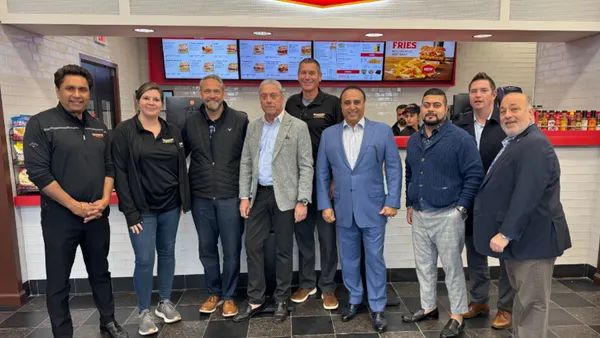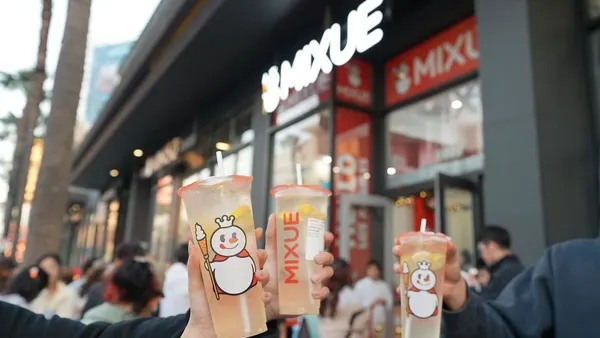Dive Brief:
- Thirty-one percent of restaurants surveyed in Toast's 2019 Restaurant Success Report offer medical insurance for employees, while 21% offer dental and 18% offer vision insurance. Less than a quarter (23%) said that they provide workers' compensation insurance.
- Of 1,253 restaurant owners and operators surveyed, 18% said they guarantee a 401(k) plan and 11% provide disability coverage.
- Big-name franchises including Sweetgreen and Starbucks have recently rolled out substantial paid parental leave policies. But across the board, just 14% of restaurant owners surveyed said they offer paid family leave to their employees.
Dive Insight:
A tight labor market remains the top concern for restaurant operators, according to 2019 TDN2K data. Operators are exploring various employee benefits as a means of attracting and retaining talent, particularly hard-to-find general managers with substantial restaurant experience. But, as Toast's research shows, the shift is slow to catch on in such a slim profit margin industry.
Restaurant owners in states with minimum wage hikes will have to manage increasing labor costs alongside any new benefit launches: 65% of employers surveyed by Toast raised menu prices in the last year and 47% scheduled fewer hours for their staff. However, with turnover rates climbing and wage rates leveling out across the industry, spending on benefits can be a way for employers to stand out from the pack.
Benefits that appeal to younger workers especially, such as paid leave and opportunities for educational or career advancement, are gaining traction. For example, Chipotle has retained a substantial proportion of its general managers by offering employees college credit and subsidized tuition, a former HR executive told Restaurant Dive's sister publication HR Dive. McDonald's, Starbucks and Taco Bell also offer some form of tuition assistance to staff.
Operators in cities including Austin and Chicago have taken a new approach to pay for their workers' healthcare insurance costs and other benefits: adding a surcharge to customers' bills. Recent survey data shows that the majority of Americans favor a $15 minimum wage, so explicitly telling customers what they're paying for with extra surcharges could help ease concerns over higher costs.
For larger brands, offering progressive benefit packages, such as Sweetgreen's five-month paid parental leave policy, can also be a way for employers to signal their corporate social responsibility. Seventy-three percent of Gen Z and millennials say they want to work at a restaurant that has a good reputation, according to research by the National Restaurant Association Educational Foundation.
Rising wages and high turnover rates are also forcing employers to look for new avenues to keep costs down. QSR companies in particular, such as McDonald's, Panera and Taco Bell, are investing in AI and self-serve kiosks, while tools such as CaliBurger's burger-flipping robot free up workers so that they can cover more customer-facing duties, which could aid retention. These technologies could potentially free up funds for competitive employee benefits and help chains attract more talent.








